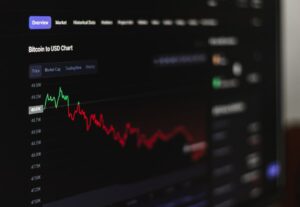The foreign exchange market, or forex, is the largest and most liquid financial market in the world. It offers traders the opportunity to buy and sell currencies in order to profit from fluctuations in exchange rates. In order to participate in the forex market, traders need to open an account with a forex broker. With so many options available, it can be difficult to choose the best forex broker for your trading needs. In this article, we will explore the pros and cons of trading with the best forex brokers.
Pros:
1. Regulation and Security: One of the most important factors to consider when choosing a forex broker is regulation. The best forex brokers are regulated by reputable financial authorities, such as the Financial Conduct Authority (FCA) in the UK or the Securities and Exchange Commission (SEC) in the US. Regulation ensures that the broker operates in a transparent and fair manner, providing a secure trading environment for its clients.
2. Competitive Spreads: Spreads refer to the difference between the buying and selling prices of a currency pair. The best forex brokers offer competitive spreads, which means that traders can enter and exit trades at minimal cost. Tight spreads can significantly improve trading profitability, especially for high-volume traders.
3. Range of Tradable Instruments: The best forex brokers offer a wide range of tradable instruments, including major currency pairs, minor currency pairs, and exotic currency pairs. They also provide access to other financial markets, such as commodities, stocks, and indices. This allows traders to diversify their portfolios and take advantage of different market conditions.
4. Advanced Trading Platforms: The best forex brokers offer advanced trading platforms that are user-friendly and equipped with a range of powerful tools and features. These platforms allow traders to execute trades quickly and efficiently, analyze market trends, and implement various trading strategies. They also provide real-time market data, price charts, and technical analysis indicators to assist traders in making informed trading decisions.
5. Educational Resources: Another advantage of trading with the best forex brokers is access to comprehensive educational resources. They offer tutorials, webinars, and e-books that cover a wide range of topics, from basic forex concepts to advanced trading strategies. These resources can help traders improve their knowledge and skills, ultimately increasing their chances of success in the forex market.
Cons:
1. High Minimum Deposit Requirements: Some of the best forex brokers have high minimum deposit requirements, which can be a barrier to entry for novice traders with limited capital. However, it is important to note that there are also forex brokers that offer low minimum deposit options, catering to traders of all levels.
2. Overwhelming Choice: The forex market is flooded with numerous forex brokers, each offering different trading conditions and services. This abundance of choice can be overwhelming for traders, especially beginners, who may struggle to differentiate between the various options available.
3. Potential for Conflict of Interest: Some forex brokers act as market makers, meaning they take the opposite side of their clients’ trades. This can create a conflict of interest, as the broker may benefit from clients’ losses. However, the best forex brokers operate as non-dealing desk brokers, which means they simply facilitate trades between buyers and sellers without taking a position in the market.
4. Trading Costs: While competitive spreads are a definite advantage of trading with the best forex brokers, traders should also consider other trading costs, such as commissions and overnight fees. These costs can eat into profits and should be carefully considered when choosing a forex broker.
In conclusion, trading with the best forex brokers has numerous advantages, including regulation and security, competitive spreads, a wide range of tradable instruments, advanced trading platforms, and educational resources. However, potential drawbacks include high minimum deposit requirements, overwhelming choice, potential conflicts of interest, and trading costs. Traders should carefully consider these pros and cons before selecting a forex broker that best suits their trading needs and preferences.






